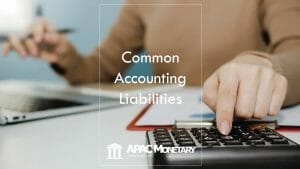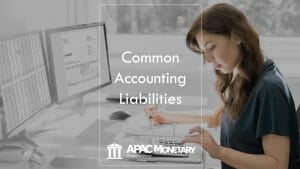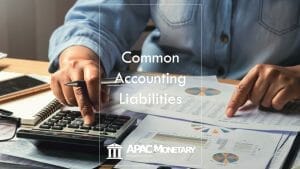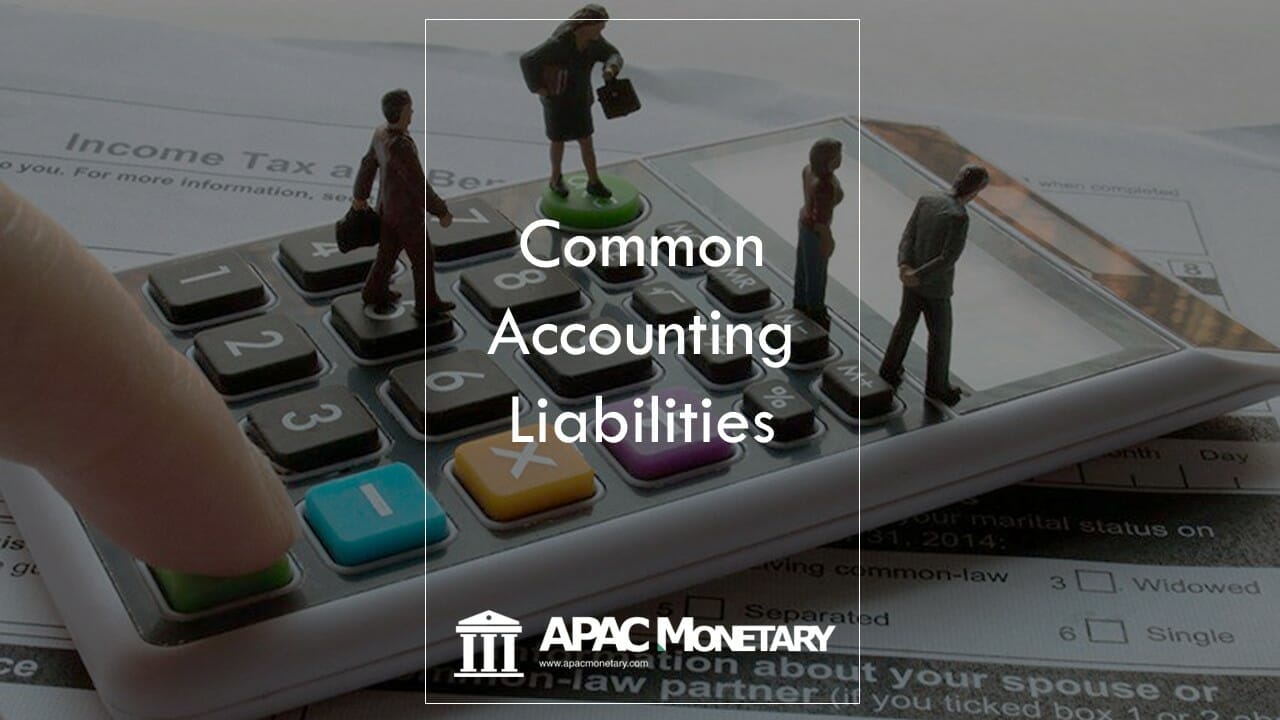Table of Contents
So you’ve decided to incorporate your business. Congratulations! But before you do, you need to make sure you don’t incur any common accounting liabilities.
In this article, we will discuss what accounting liabilities are, how to record them, and eleven tips for beginners to help them understand the concept.

What are Accounting Liabilities?
An accounting liability is a financial obligation that a business has to pay in the future.
This could be something that the business owes to another party, like a customer, or it could be something that the business owes itself, like money that it has borrowed from lenders.
Accounting liabilities are important because they tell investors and other creditors how much money a business is likely to need in the future in order to meet its financial obligations.
11 Tips for Avoiding Common Accounting Liabilities
Here are the 11 most common accounting liabilities and how to avoid them.
1. Payroll Deductions
Payroll deductions can be a valuable part of your business’s financial planning, but they can also lead to some common accounting liabilities.
Here are some tips to help you avoid these problems:
a. Make sure that all deductions are warranted by the facts and circumstances of the particular situation. Don’t make unsupported deductions just because they’re convenient or administratively easier to take on.
b. Review your payroll deduction policies and procedures regularly to ensure that they’re consistent with company policy and applicable law. If there is a change in the law that could impact your deductions, be sure to update your policies as necessary.
c. Make sure that all employees who may be entitled to salary or other types of compensation receive proper notification about their rights and responsibilities with regard to payroll deductions. This includes specifying which employees are eligible for which types of deductions, specifying the amount of each deduction, and setting forth any other relevant information required by law or company policy.
d. Hold employees responsible for accurately reporting their wages on W-2 forms and other tax forms related to income from employment (such as 1099 forms). If an employee fails to report wages correctly, withhold appropriate taxes and penalties from the employee’s salary, and follow up with the employee to ensure that the wage information is correct.

2. Depreciation
There are a few tips that you can follow to help avoid common accounting liabilities. One of the most common is depreciation.
By following proper guidelines, you can avoid recording expenses for equipment that has not reached its estimated life span.
You should also be aware of the time limits that apply to certain types of expenses.
For example, you cannot depreciate property that has been destroyed or rendered unusable.
Additionally, make sure to keep accurate records so you can properly track your financial progress over time.
3. Bad Debts and Liens
Debts and liens are two common accounting liabilities.
Debt is money that a company owes to creditors. A lien is a legal claim on the assets of a debtor, which gives the creditor the right to seize those assets if the debt isn’t paid.
Both debts and liens can have serious consequences for a company, especially if they’re not managed properly.
To avoid getting into debt trouble, it’s important for companies to keep tabs on their cash flow and ensure that they’re never overextended.
They should also regularly review their credit rating to make sure that they’re not carrying too much debt relative to their ability to pay it off.
If things start to go wrong, companies can negotiate with their creditors or file for bankruptcy protection to get out from heavy debt burdens.

4. Taxes
When businesses establish their financial position, they must account for their liabilities. One of the most common accounting liabilities is paying taxes.
Businesses must account for all income and expenses, including taxes.
When estimating tax liabilities, businesses should keep in mind various factors, such as taxable income and deductions.
By taking these factors into account, businesses can avoid common accounting liabilities related to taxes.
5. Unreimbursed Costs
Unreimbursed costs can be avoided by carefully tracking and reviewing the expenses incurred in a given period.
This will help identify any unreimbursed costs that may have occurred and may need to be reimbursed.
Additionally, it is important to review company policies and procedures to ensure that all expenses are properly documented and approved.
By doing so, you will avoid potential accounting liabilities.
6. Profit Before Tax (PBT)
Profit before tax (PBT) is a key financial indicator of a company’s overall performance.
However, many companies often fall victim to common accounting liabilities that can have a negative impact on their PBT.
By understanding the common accounting liabilities that can impact PBT, companies can avoid these problems and improve their overall performance.

7. Paying Off Debts
A business may have liabilities that it owes to others. These can include loans, mortgages, and credit card bills.
When a business pays off these debts, it is reducing its accounting liabilities.
That said, there are some common accounting liabilities that a business should be aware of.
For example:
- Income taxes: A business must report all income and pay taxes on it. This includes any money it earns from loans and credit card debt payments.
- Employee wages and benefits: Employees are entitled to receive their wages and benefits, including Social Security and Medicare payments, as well as paid vacation time and sick days. If the company does not have the money to pay these benefits when they are due, the employees can sue for payment in court.
- Property taxes: Businesses must pay property tax on all their property, whether or not they make a profit from that property. If the company cannot pay its property tax bill when it comes due, the government can seize the business’ assets to cover the debt.
8. Filings
Accounting liabilities are often unavoidable when doing business.
However, there are a few things you can do to minimize the risks associated with these liabilities.
First, make sure all of your financial statements are accurate and complete. This includes tracking and recording all transactions, credits, and debits, as well as calculating depreciation and amortization rates.
Second, stay organized and keep track of where your money is going. This will help you identify any inconsistencies in your financial records and make necessary adjustments before filing your taxes.
Finally, be sure to consult with an accountant or other financial professional if you have any questions or concerns about your finances.

9. Accounts Receivable
Accounting liabilities include the obligation to pay money that an organization owes to others. Many of these liabilities come from accounts receivable, which is when a company sells products or services to another party.
When an organization defaults on its accounts receivable, it can result in financial losses for both the company and the creditor. To avoid these losses, it is important for organizations to understand their accounts receivable and track their progress regularly.
10. Inventory
Inventory is a common accounting liability. This is because inventory can be used to prove that a company has sold goods and that the money that was paid for those goods was actually spent. This can be difficult to do if the inventory is not accurate.
There are several ways to avoid having an inaccurate inventory.
One way is to use a system that tracks what has been sold and what has been used in the production process.
Another way is to use the accrual method of accounting, which means that companies record revenue when it is earned rather than when it is actually paid.
11. Other Expenses
If you are looking to avoid common accounting liabilities, it is important to review your expenses and make sure that they fall within accepted accounting standards.
By doing so, you will help ensure that your financial statements are accurate and reflect the true financial condition of your business.
Additionally, making sure that your expenses are reasonable will help avoid any disputes with auditors or other external sources of scrutiny.

Bonus Tips
12. Know what is and isn’t an asset in accounting
One of the most common accounting liabilities is accounts receivable. These are the amounts owed to you by customers after they’ve received goods or services from your business.
However, this doesn’t mean all receivables are created equal. Some receivables are more valuable than others and should be classified as assets rather than liabilities.
13. Keep track of your accounts payable balances
Another common accounting liability is accounts payable. This category includes obligations your business has to pay suppliers and other vendors for goods or services received.
It’s important to keep track of your accounts payable balances so you know exactly how much money you owe each supplier.
If you don’t have sufficient funds to meet these obligations, it can lead to financial problems down the road.

14. Make sure your bank account is fully funded prior to incorporation
Before incorporating your company, make sure all bank accounts currently used by the company are adequately funded with liquid assets (cash and equivalents).
This will ensure that any unexpected expenses won’t cause money problems down the road when it comes time to invoice customers or pay suppliers.
15. Create contracts that reflect reality
As businesses grow, contract provisions often change – sometimes quite dramatically – from one year to the next.
It’s important that contracts between parties involved in business transactions reflect current realities, not just what was agreed upon back when things were more stable.
Having accurate contract provisions can save a lot of heartache down the road… especially if something goes wrong!
16. Establish written procedures for key processes
In order to ensure smooth sailing during times of high traffic (and lots of confusion), it’s a good idea to establish written procedures for key processes within your company: invoicing customers; collecting payments from suppliers; processing orders; shipping products; etc…

Accounting Liabilities and Why They Matter
Accounting liabilities are the debts that a business owes to its creditors.
These liabilities can take many different forms, including money owed to banks, suppliers, and customers.
Accounting liabilities are important because they provide a basis for calculating a company’s financial position.
They also affect a company’s ability to borrow money and access credit markets.
In addition, accounting liabilities can influence the price of a company’s stock.
How to avoid the most common accounting liabilities
There are a few common accounting liabilities that businesses can fall victim to. The most common of these is the potential for unpaid taxes.
By understanding the tax code and keeping up with changes, businesses can avoid owing money to the government that they may not be able to pay back.
Additionally, businesses may also owe money to creditors for outstanding loans or credit card bills.
While it is important to take care of financial obligations, it is also important to stay on top of expenses so that debt levels do not grow out of control.
Businesses should also keep an eye on their working capital as it can indicate whether expenses are being used efficiently or if there is room for growth in revenue.

The Different Types of Accounting Liabilities
An accounting liability is a financial obligation that a business owes to another entity, such as a creditor or shareholder.
There are four main types of accounting liabilities: current liabilities, long-term liabilities, shareholders’ equity, and special obligations.
Current liabilities are those that need to be paid within one year and have an immediate impact on the company’s liquidity.
Examples include short-term debt and accounts payable. Long-term liabilities are those that need to be paid in more than one year but have a smaller immediate impact on the company’s liquidity. Examples include pension contributions and long-term debt.
Shareholders’ equity is the value of a company’s stock plus its retained earnings.
Special obligations are those that don’t fit into any of the other three categories and require special consideration when calculating the company’s financial position.
An example is an agreement to sell goods at a set price in the future.

How Accounting Liabilities are Recorded
An accounting liability is a financial obligation that a company has to meet in the future.
This might be something like the money it owes to the government for taxes it will owe in the future, or the money it owes its creditors for loans it has already made.
When a company records an accounting liability, it makes a note of this on its balance sheet.
How Accounting Liabilities Impact Businesses
Accounting liabilities are debts and other financial obligations that a business owes to others. These liabilities can come from contracts, loans, or investments.
They can also be the result of past transactions, such as sales or purchases. When a business has more accounting liabilities than assets, it has a financial problem.
This can lead to bankruptcy if the company cannot pay its debts. In order to avoid bankruptcy, businesses must manage their accounting liabilities carefully.

The Importance of Managing Accounting Liabilities
An important part of managing a business is understanding and managing its accounting liabilities.
When businesses know what they owe, they can make better decisions about how to allocate resources and manage their finances.
By understanding accounting liabilities, businesses can also ensure that they are in compliance with legal and financial requirements.

Key Takeaways on Accounting Liabilities
The purpose of this paper is to provide a guide on how to avoid common accounting liabilities.
There are many important aspects to consider when avoiding these liabilities, such as ensuring accuracy in financial reports, complying with government regulations, and protecting the company’s long-term financial health.
It is important to consult with an accountant or other financial professionals when making any decisions related to accounting and tax liability.
These are some tips for avoiding common accounting liabilities. By following these tips, you can help your business avoid unnecessary expenses and generate more profit.









